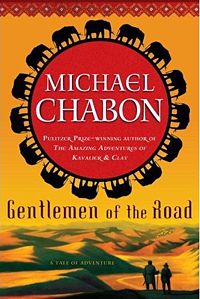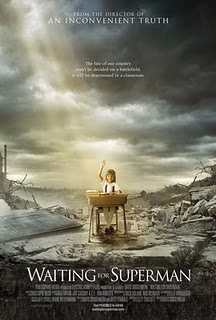Time to finish up my quick discussion of the scores for my birthday film festival. Feel free to agree, disagree, or wonder what in the world I'm thinking.
The Producers - I need to start with a quick caveat: I have not seen the musical version or the movie of the musical, though I admit to a perverse glee in considering that a movie was made of a musical made of a movie about the making of a musical. My head just hurts thinking about it.
John Morris is not a widely-recognized name in film scoring. He was a favorite of Mel Brooks's and wrote the scores for most of the writer/director's movies. He also wrote the score for Dirty Dancing, though raise your hand if you can hum any tune from that movie except for "The Time of My Life." Overall, this low profile fits what I heard in The Producers. The music is unobtrusive and mainly pastiche. It gives you exactly what you would expect, exactly when you would expect it, and manages not to get in the way of the words or visuals. In fact, Mel Brooks helped write the film's most memorable music, the opening number of "Springtime for Hitler." All in all, the film's music reinforced the commonly-held prejudice that comedy scores lack musical sophistication because the overall sound design is more important in getting laughs.
Vertigo - Herrmann is a master. His scores for Hitchcock films are among his most daring and successful. Vertigo stands alongside Psycho as his greatest achievement.
What more can you say?
Next, please.
There is plenty to say, and plenty have said it, a fact you probably gleaned from my earlier comment that I heard two papers on the music this year alone. Alex Ross has written one of my favorite discussions of the film and the music, and you should definitely read it. But even without following the link, you have to admit that Vertigo is one of the great works of the 20th century. I'm planning on adding a day in the spring to my Music History Survey class on film music and we'll probably look at Vertigo. To give you an idea of how good a score it is, think of the opening credits. Saul Bass designed swirling, twisting spirals that are so good at communicating vertigo that Joy had to look away because her head was already hurting that night. Behind those images, Herrmann's main title music endless circles through third relationships, hinting at a tonal center, but never giving us one. Those hints of tonality pull at our musical perception in the same way the spinning images do our visual and together give us a complete picture. They tell us that all is not as it seems and we will be pulled off our center by the movie.
Herrmann's music works this way through most of the movie. There are long, long stretches with no dialogue, but the music tells us what is going on inside the actor's heads. It creates an atmosphere as clearly as Chinatown, but is exactly the opposite. Where Goldsmith uses the barest minimum of materials to define Chinatown's corruption, Herrmann overloads the film with Post-Romantic lushness to create madness and obsession. It is truly a brilliant score.
The Rules of the Game - Music is quite possibly the weakest element of this sterling film and may be why it continues to rank below Citizen Kane on all-time-best lists. Kane boasts Herrmann's first film score and the music adds immeasurably to the film. The Rules of the Game boasts costumes by Coco Chanel, but lacks cohesive original music. Instead, Renoir used fragments from many different composers, most notably Saint-Saëns. The music works to some degree in establishing the characters' pedigree, but does not help the narrative or reveal anything about the characters beyond the surface. A musically disappointing end to a marvelous week in film and music.
Self-doubt in the tech industry
2 years ago




2 comments:
Ferris was so excited to hear that you analyzed each one of your birthday movies, then analyzed the film scores separately. He does that incessantly too, most of the time without realizing it. Get him on the subject of XTC or The Wire or anything else he's into and let'er rip. He doesn't even bother with stuff that doesn't furnish enough material for analysis. Hope your week is good, talk to me about the lake!
Yeah, when they gave me the PhD, they also gave me a license to analyze stuff to death. Comes with the job I suppose. :)
Post a Comment